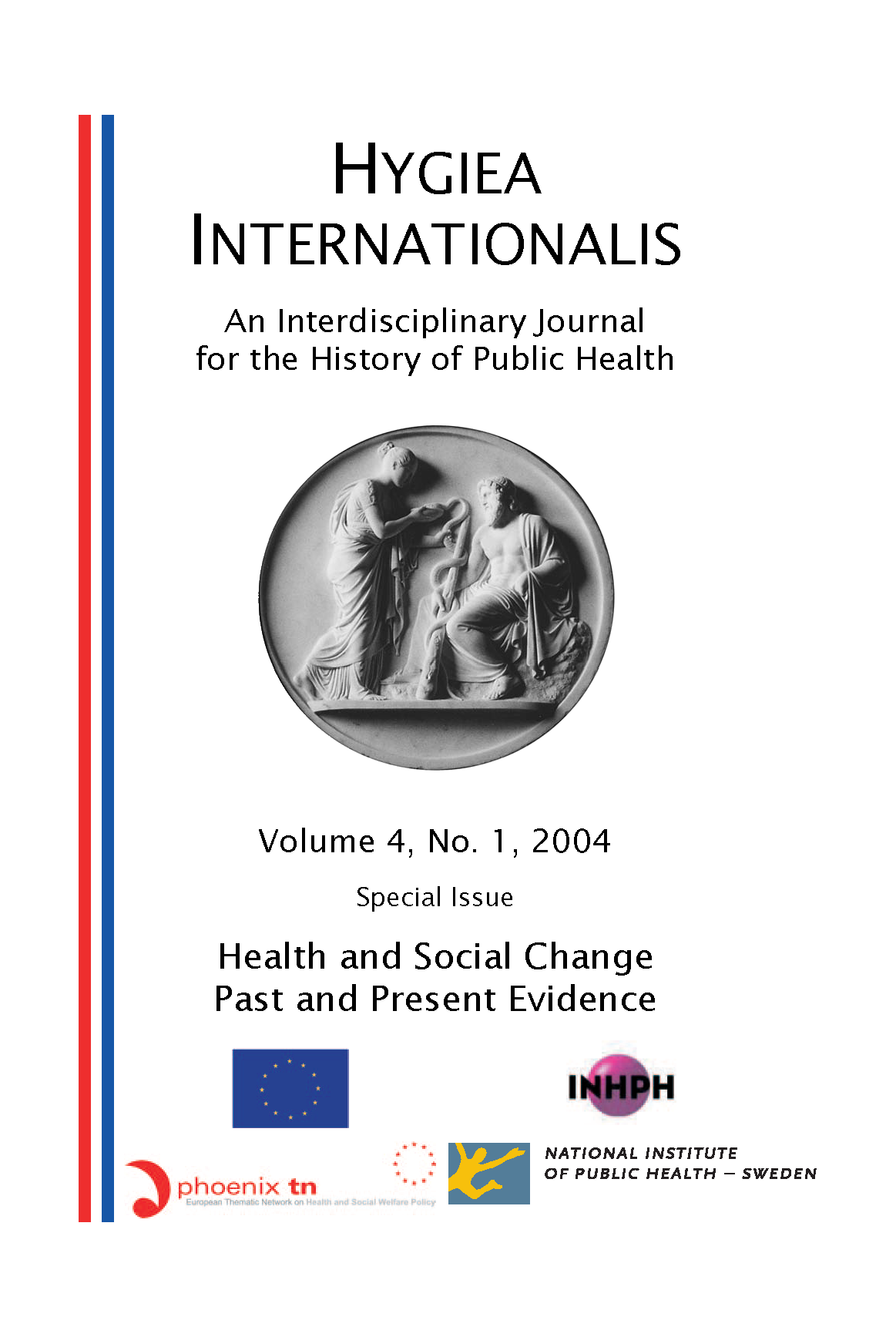Social Changes and Better Health Conditions of the Portuguese Population 1974-2000
DOI:
https://doi.org/10.3384/hygiea.1403-8668.0441255Keywords:
Ageing, Health, Fertility, Mortality, Epidemic Transition, Gender, Health ServicesAbstract
The comparison between statistical data on collective behaviours of Portuguese population for the last 30 years and social and economic changes shows that rapid social changes does not necessarily have to cause a health crisis. The new political regime during the last quarter of the 20th century coincides with a redirection of the policy towards a welfare system more similar to the one in other Western European countries. Portugal’s integration into the European Union was another potential reason for the remarkable improvement that has taken place economically, socially and demographically. Life expectancy for women is today at the same level as in the rest of the EU, while it lags behind with a few years for men. However the Portuguese case needs further investigation analysis before it is possible to give a more precise explanation for the notable progresses of the last decades, and can represent an example of the way politics can enhance social cohesion and social stability, smoothing the potential negative effects of rapid changes.Downloads
Published
2004-12-10
How to Cite
Rodrigues Veiga, T., Guardado Moreira, M. J., & Fernandes, A. A. (2004). Social Changes and Better Health Conditions of the Portuguese Population 1974-2000. Hygiea Internationalis: An Interdisciplinary Journal for the History of Public Health, 4(1), 255–276. https://doi.org/10.3384/hygiea.1403-8668.0441255
Issue
Section
Articles
License
Copyright (c) 2004 the Author(s)

This work is licensed under a Creative Commons Attribution-NonCommercial 4.0 International License.






